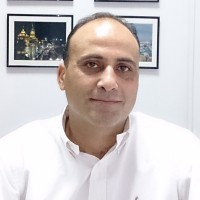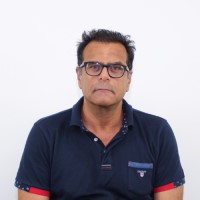University Courses taught by the ehealthlab@CUT Leaders |

Dr Efthyvoulos Kyriacou
Assistant Professor
EEN 214 - Electronics I
Course Purpose and Objectives: The purpose of the the course is to understand the function and characteristics of semiconductors for specific applications. The student should fully analyze the basic circuits with diodes and transistors. Learning Outcomes: Acquire comprehensive knowledge on the analysis, operation, design and implementation of circuits with diodes, and transistors. Course Content: Semiconductor diodes, Bipolar junction transistors, Field effect transistors, Bias and stability, Small signal amplifiers, Differential Amplifiers, Power amplifiers, Frequency response.

Dr Efthyvoulos Kyriacou
Assistant Professor
EEI 312 Electronics II
Course Purpose and Objectives: Understand the function and characteristics of operational amplifiers for specific applications. The student should analyze and design basic circuits with Op-Amps and understand Digital Electronic Circuits Learning Outcomes: Acquire detailed knowledge on analysis, operation, and implementation of Op-Amp circuits. Design of circuits with Op-Amps and understanding and design digital electronic circuits Course Content: Inverting/Non-Inverting Amplifier, Summing Amplifier, Integrator and Differentiator, Linear applications of Op-Amps, Comparators and Schmitt trigger, Non-Linear applications of Op-Amps, Active filters and timing circuits, Waveform generators, and Digital Electronic circuits.

Dr Efthyvoulos Kyriacou
Assistant Professor
EEN 561 Bioinstrumentation
Short Info: The course aims to study the design and application of bio-instruments for biodynamic measurement, in vivo physical measurement and chemical measurement and for the use of electrical stimulation for therapeutic purposes. Emphasis is placed on learning the principles, techniques and good practice correctly for the design and implementation of bio-instruments. The safety aspect in clinical applications is also addressed.

Dr Christos Loizou
Adjunct Professor
CEI 229 Bioinformatics
Short Info: Introduction to the basic principles of Biotechnology combined with basic engineering principles in problems involving biology and medicine. Understanding the basic functions of the human body and how biological signals are generated. Application of basic engineering principles for biological signal recovery and methods for the integration of engineering into biology, and new areas in industry. Introduction to bioinformatics, with pairwise sequence alignment and multiple sequence alignment algorithms. Understanding of basic principles of medical data storage standards and methods and of the principles of ultrasound, X-ray, CT, MRI, and PET imaging.

Dr Christos Loizou
Adjunct Professor
CEI 120 Fundamentals of Electrical Engineering, Computer Engineering and Informatics
Short Info: The course makes an ntroduction to the fundamentals of electrical engineering and biotechnology combined with fundamentals of engineering and Computer and Information Engineering to tackle problems and challenges met in the industry. Understanding of the basic principles and axioms of electrical engineering and methods to create, manage, transfer and utilize energy.

Dr Christos Loizou
Adjunct Professor
EEN 318 Digital Signal Processing
Short Info: The course introduces the basics of the theory and methods of digital 1-dimensional signal processing. The most important topics discussed are discrete-time systems and properties, continuous and discrete Fourier transform and applications. Introduction to the design of finite and infinite (FIR and IIR) impulse response digital filters. Upon completion of the course, students are expected to have a good knowledge of the basic concepts and application areas of Digital Signal Processing (DSP), and to be able to use their programming experience to develop DSP programs. The students will also be able to use DSP algorithms and appropriate techniques to solve specific problems.

Dr Christos Loizou
Adjunct Professor
EEN 411 & 412 Assignment in the Integrated Planning Sector I & II (2 Courses)
Short Info: Integrated design courses provide an opportunity to apply the engineering knowledge and skills accumulated so far and to understand new concepts in engineering management. An engineering system design assignment is jointly agreed with a student, (or with a group of students), by the supervising professor. The team studies the problem, develops design alternatives, and selects the most feasible solution. The prototype of the system is completed after obtaining all the necessary materials and then checking and correcting any errors. After the system is completed the team presents the system design and prototype to a panel of judges for evaluation.


